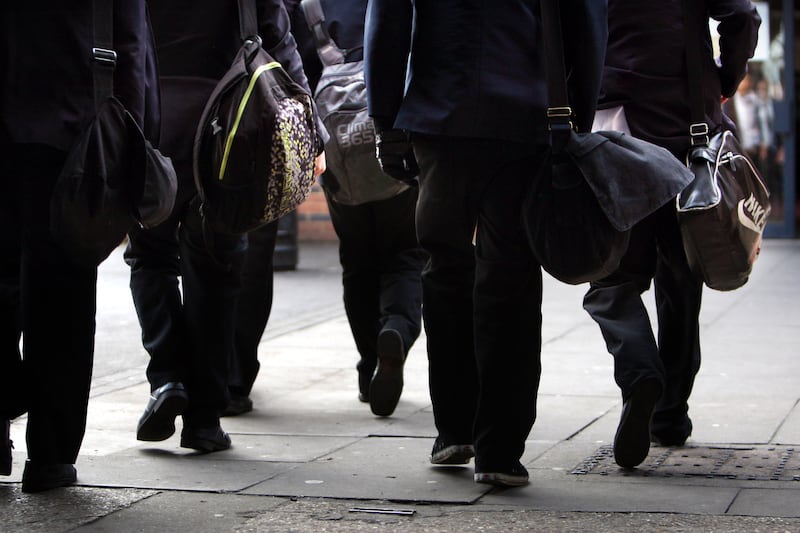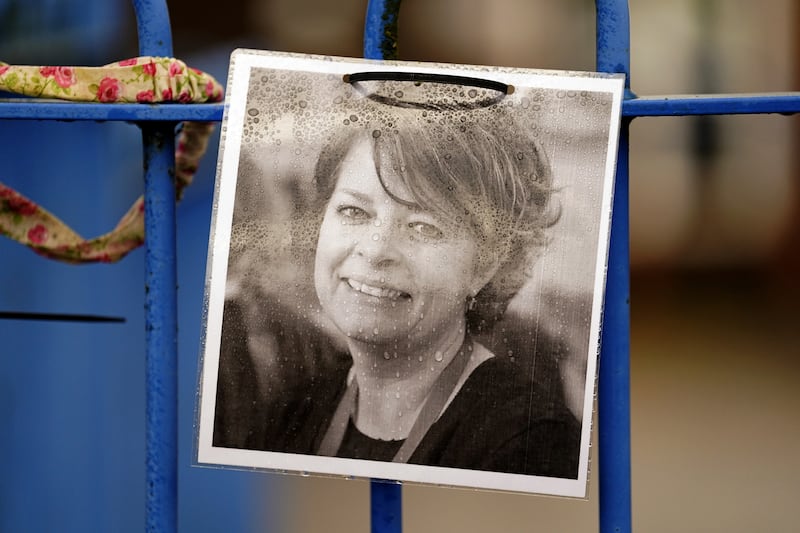Thousands of families across the country are facing disruption at the start of the academic year following concerns about crumbling concrete in schools.
Pupils have been told in some schools they cannot return to the classroom as planned following the summer break after collapse-prone reinforced autoclaved aerated concrete (Raac) was found in school buildings.
Last week, more than a hundred schools in England were told to fully or partially close by the Government as a result of safety concerns about Raac.
But the Department for Education (DfE) has still not published the full list of schools affected by the concrete crisis despite repeated calls to do so.
Headteachers have been scrambling to find temporary teaching spaces, while others have been forced to replace face-to-face lessons with remote learning.
Leaders of a coalition of unions wrote to Education Secretary Gillian Keegan on Monday demanding urgent answers on the Raac “emergency” in schools.
School staff are “managing the anxiety” of parents and carers on behalf of government and they have a right to know how this happened, the unions said.
The letter – from the school leaders’ union NAHT, the Association of School and College Leaders (ASCL), the National Education Union (NEU), the NASUWT teaching union, GMB and Unison – called for clarity over the support for schools and the funding arrangements for dealing with Raac.
It said: “It cannot be right that school leaders and their teams are charged with making decisions about the immediate risk of harm if they discover or are concerned that Raac is present on their site. They do not have the relevant expertise to make such assessments.
“Members of our unions, particularly in leadership positions, may be faced with calls from staff or the public to evacuate the site or parts of that site if there is any uncertainty whatsoever.”
Schools could have “ceiling props and mobile classrooms for years” if required reparation works to buildings are reliant on existing capital roll out, it added.
Geoff Barton, general secretary of the ASCL, said: “Schools need an assurance that capital funding covers not just the cost of mitigating immediate risks with emergency measures but the long-term cost of replacing buildings where this is necessary.
“Additional revenue costs must also be covered by the DfE, for example where children have to be transported to an alternative site. Schools cannot afford unbudgeted costs.”
Four year groups at a secondary school in Buckinghamshire will have remote learning at the start of the academic year due to Raac issues.
Matthew Abbott, headteacher of Waddesdon School – where years 9, 10, 11 and 13 will learn at home – said: “It goes without saying that this is extremely regrettable, especially so close to the start of a new school year, but that ultimately, the safety of the school community has to take priority.
“It is of course our highest priority to find alternative arrangements that keep any disruption to learning and the normality of school life to an absolute minimum.”
Meanwhile, a headteacher of a school in Suffolk said pupils could be taught in his office after Raac was found in its classrooms.
Peter Smith, headteacher of Farlingaye High School in Woodbridge, told BBC Radio 4’s Today programme: “We’re going to have to be creative. We’re going to have to find classroom spaces on the site that perhaps aren’t.
“My office, the canteen, the dance studio… those things are going to have to become teaching spaces while we figure this out.”
Mr Smith said: “We’ve got kids here whose education has already been disrupted by the pandemic and various other issues.”
He added: “We need that support and reassurance that this is going to be all hands to the pump and everything (is) done that’s needed to be done.”
On Monday, Education Secretary Gillian Keegan vowed to publish a list of the schools affected by the concrete crisis this week.
She told BBC Radio 4’s Today programme: “We will publish the list, but I do want to double-check that the school has had the opportunity – because not all the schools are back yet – to tell all parents.”
Ms Keegan said three companies providing portable buildings have already been contracted to set up temporary classrooms.







